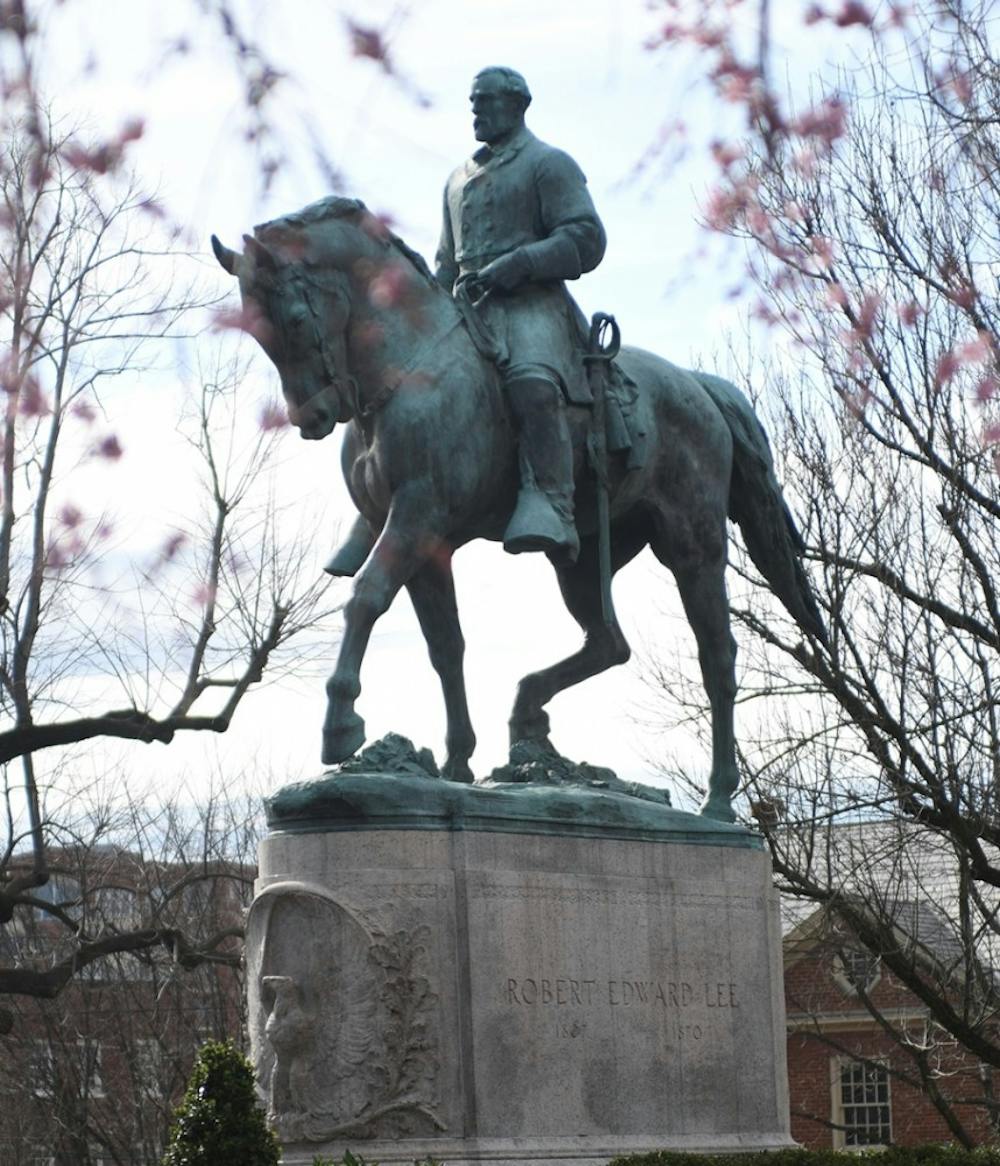Charlottesville is currently reeling from a rally held by white supremacists in Lee Park on May 13 to protest the removal of Confederate emblems. Many of these protesters were wielding torches, harkening back to the days of the Ku Klux Klan. Because of the reaction by white supremacists, some opponents of keeping the Robert E. Lee statue in Lee Park feel this event proves the statue’s removal is the right thing to do. I have written before about this topic, and I think it is more important now than ever to remember that the resources dedicated to removing the statue will have a limited effect on achieving racial equity in Charlottesville. Instead, our community’s resources should be used to address systemic inequities.
One important part about the removal of this statue is its cost. It is estimated the removal will cost $300,000, which is a considerably large sum of money. Even though the city plans to sell the statue, it does not plan on trying to make a profit, which is illustrated by their willingness to donate the statue if they do not find a suitable buyer. These costs are compounded with the resources the city will need to defend the removal of the statue in court against a lawsuit brought by citizen groups opposed to the statue’s removal. This lawsuit may end up costing the city even more money in the long run because of a temporary injunction blocking the removal of the statue for six months. These issues account for a considerable amount of time and resources spent by the city on removing this statue when other serious problems — concerning racial inequality — remain.
Despite this cost, in the aftermath of this rally, the Charlottesville City Council seems to have been reassured that they have done the right thing by voting to remove the statue. In particular, statements by Councilor Kristin Szakos make it clear that she believes removing this statue is an act of racial justice that will do a lot of good in this community. Szakos said she views the statue and the park as obstacles to achieving racial equity in Charlottesville. The Council seems to believe that, by attempting to address the feelings of those in our community, we are making progress toward racial justice. While it is true that we should seek to respect the feelings of our neighbors, it is important to understand that removing this statue does little in the way of achieving racial equity.
Instead of spending large amounts of time and resources on the statue, the Council should tackle serious problems minority citizens face in this community. One thing which needs to be addressed is the racial student achievement gap in Charlottesville, which was noted in a Stanford study about education inequities in the United States. Charlottesville is also currently facing an affordable housing crisis, where 50 percent of residents spend over a third of their income on housing. Redirecting resources toward building more affordable housing units would significantly help low-income African Americans who are a disproportionate percentage of the homeless population and also help the community deal with the effects of gentrification. Also, in light of the recent report showing racial disparities in marijuana arrests in Virginia, Charlottesville could follow Hampton and Newport News’s lead by refusing to prosecute low level marijuana offenses. There are many problems which can and need to be addressed by the Council — it is disheartening to see that officials are wasting so much time and money on a statue’s removal.
I know the effect these memorializations of the Confederacy can have on the community. I grew up next to a street named after Jefferson Davis, and I remember being shocked by the fact that the city I live in would memorialize such a man. Even though I understand the pain of seeing these awful ideologies memorialized, they represent an unfortunate truth — no matter how many times we try to rename or remove these memorials of America’s past and racism still persists. It is up to the community and public organizations to counter the narrative of the protesters in Lee park by making real progress on systemic racial inequality in Charlottesville. This will not happen until we — as a society — get our priorities straight and address systemic racial inequity, not just its symbols. Maybe if officials in Charlottesville focused as much energy on the problems African Americans face in this city as they do on the Lee statue, greater progress would have occurred by now.
Jacob Asch is an Opinion columnist for The Cavalier Daily. He may be reached at opinion@cavalierdaily.com.







